MercoPress. South Atlantic News Agency
Tag: Ilan Goldfajn
-
Wednesday, March 1st 2023 - 09:05 UTC
IMF picks former Chilean Minister to replace Goldfajn
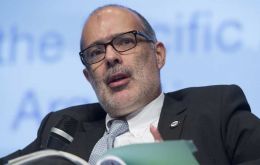
International Monetary Fund (IMF) Managing Director Kristalina Georgieva Tuesday announced that Chilean Economist Minister Rodrigo Valdés had been chosen to succeed the Brazilian Ilan Goldfajn as Regional Director of the global agency. Goldfajn left his post to become President of the Inter-American Development Bank (IDB).
-
Monday, November 21st 2022 - 10:44 UTC
Goldfajn chosen new IDB boss

Brazil's Ilan Goldfajn was elected Sunday as the new head of the Interamerican Development Bank (BID), it was reported in Washington DC.
-
Friday, October 14th 2022 - 10:08 UTC
IMF experts foresee economic slowdown in the region for 2023
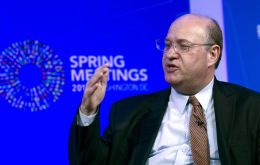
Growth projections in the region next year have been trimmed downwards due to inflation and skyrocketing interest rates, the International Monetary Fund (IMF) announced Thursday.
-
Saturday, February 19th 2022 - 10:06 UTC
IMF says draft of deal with Argentina almost ready

A high-ranking International Monetary Fund (IMF) official Friday announced a full deal with Argentina “is very close,” as the Government of President Alberto Fernández hopes it will be next week, so that it can be put up for Congressional approval at the start of the new Legislature, March 1.
-
Thursday, February 7th 2019 - 10:29 UTC
Brazil central bank leaves interest rates at record low 6.5%
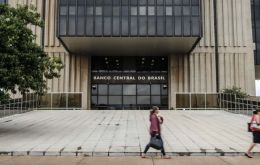
Brazil’s central bank left interest rates at a record low on Wednesday as expected, and signaled it is in no rush to change them even though inflationary pressures have cooled. The bank’s nine-member monetary policy committee, Copom, voted unanimously to keep the benchmark Selic rate at 6.5% for the seventh straight meeting.
-
Saturday, January 5th 2019 - 08:59 UTC
New Brazilian administration prepared to open concentrated banking to foreign competition
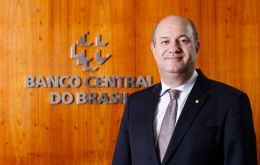
The fast pace of Brazilian president Jair Bolsonaro continued on Friday, with current central bank Governor Ilan Goldfajn telling newspaper Valor Economico that the new administration is likely to empower the central bank to approve the entrance of new foreign lenders into Brazil.
-
Wednesday, November 28th 2018 - 18:50 UTC
Brazilian credit card users offered predictable exchange rate for deals in foreign currency

Brazil's Central Bank (BCB) President Ilan Goldfajn Wednesday announced a new rule for credit card charges in foreign currency: the sum consumers will have to pay in reais will be calculated on the basis of the exchange rate at the day of the transaction. The measure, however, will become effective as March 1, 2020.
-
Friday, June 29th 2018 - 08:40 UTC
Brazil central bank slashed 2018 growth forecast to 1.6%
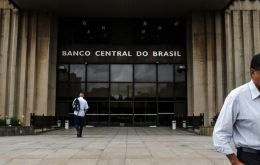
Brazil’s central bank on Thursday slashed its growth forecast for 2018 gross domestic product after a nationwide truckers strike paralyzed key sectors of Latin America’s largest economy. The bank sees GDP growth of 1.6% this year, according to its quarterly inflation report, compared to 2.6% previously.
-
Friday, June 8th 2018 - 08:35 UTC
Temer denies any risk of a currency crisis; Central bank pledges “all the necessary liquidity”
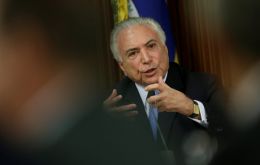
Brazilian President Michel Temer said on Thursday there was no risk of a currency crisis in Latin America's largest economy despite sharp falls in the exchange rate, while the central bank chief pledged to maintain the bank's intervention in the market.
-
Monday, April 23rd 2018 - 08:37 UTC
Speed of recovery, the main debate on the Brazilian economy

Brazil's policy makers welcomed an upward revision of the country's growth by the International Monetary Fund, while downplaying the fact its estimate remains lower than others.
